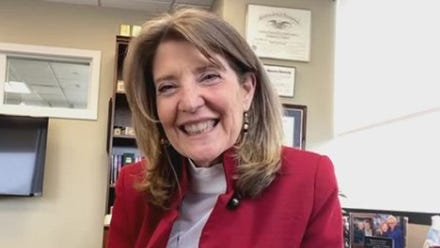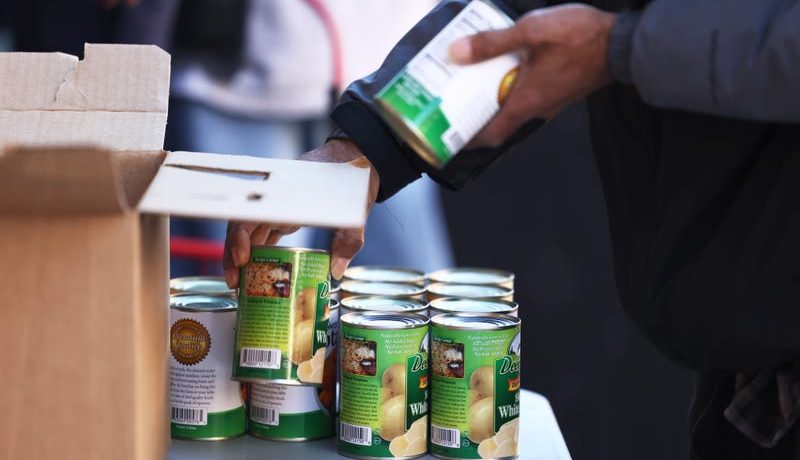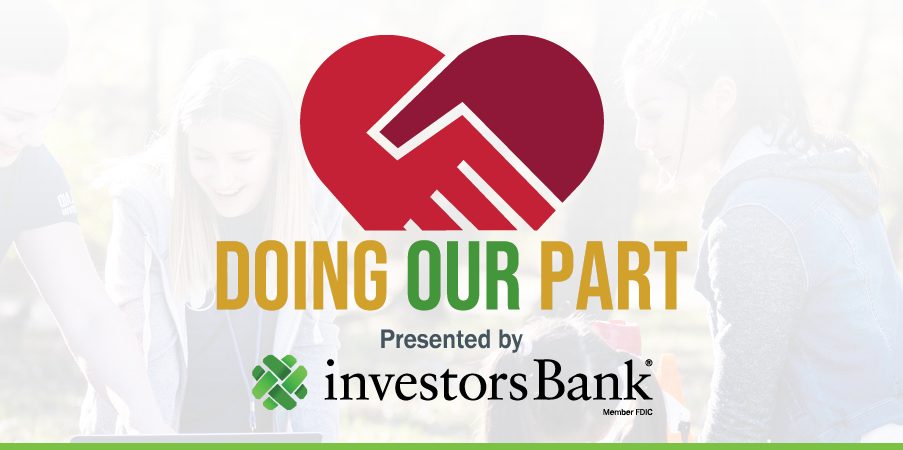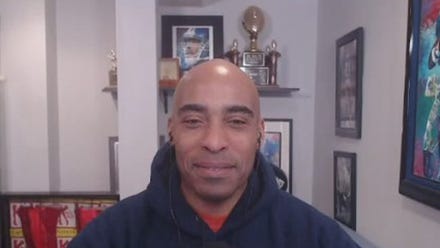
Neil A. Carousso produces NewsNation original “Kurt’s Country” – a celebration of country music and a slice of Americana with host Kurt Bardella.
-
Small Business Spotlight: Cindi Bigelow Shares Tips for Surging Online Sales as Retail Remains Sluggish
Posted by: Neil A. CaroussoPost Views: 909By Joe Connolly and Neil A. Carousso
NEW YORK (WCBS 880) — It’s no surprise online sales have surpassed retail sales given pandemic restrictions, but Bigelow Tea’s third-generation president and CEO Cindi Bigelow understands exactly how to grow her fan base.
“It’s very important that you build out each page for each product with as much as you can both from a visual perspective and a verbal perspective so that you have to make that product come alive,” said Bigelow on the WCBS Small Business Spotlight, sponsored by Dime Community Bank.
She calls this the “digital shelf,” likening it to a store shelf that should capture shoppers’ attention ideally at eye level.
“We have a team of individuals that literally work on the different places that we are on the web to examine every single page to make sure that page is maximized,” Bigelow said.
She told Joe Connolly and Neil A. Carousso her world famous Bigelow Tea is very much in demand with online sales of some teas surging beyond 100 percent. But, the overall business is only up 6 percent while retail, restaurants, offices and universities are closed or limited 11 months after COVID-19 shut down large swaths of the U.S. economy.
“That’s a high hurdle to get over,” she said.
Bigelow’s manufacturing plant based in Fairfield, CT. She employs 400 workers at her family business with 300 employees in manufacturing who are required to be on-site with safety precautions in place. She expressed concern on WCBS 880 about small businesses that do not have the resources to invest in digital infrastructure.
“What about Main Street?” Bigelow asked with excitement, continuing, “Don’t you want your child to be able to work at the pizza shop down the street during their summers and being able to work at a shoe store?”
She explained she is sensitive to how local businesses have been stifled by the deadly virus and the lack of government relief, noting it could impact generations to come.
Those that are in operation, Bigelow said, need to pay close attention to consumer behavior and changing trends.
“We will listen to absolutely everybody,” she said, using a customer complaint about the lack of “peachiness” in one of her teas as an example. She noted that’s how they “identify what to do better.”
Bigelow’s motto is “the meanest taste bud wins,” meaning she will listen closely to those who offer criticisms to improve her products, which have been on store shelves for 75 years.
That’s one way she limits the echo chamber of “yes men” around her and a way to anticipate changing consumer preferences she applies to tea, but can apply to any industry.
See Joe Connolly and Neil A. Carousso’s conversation with Cindi Bigelow of Bigelow Tea on the WCBS Small Business Spotlight video above.
-
State of Black New York: Income Inequality and Race
Posted by: Neil A. CaroussoPost Views: 1,021By Lynda Lopez, Marla Diamond and Mack Rosenberg, WCBS Newsradio 880
NEW YORK (WCBS 880) — We at WCBS 880 and Entercom New York are pleased to partner with the New York Urban League to shine a spotlight on issues of inequity in our community in important areas like health care, education, the digital divide, social justice, the economy, and civic engagement.
Last week, we looked into the racial inequities in health care and education.
As we dig into a comprehensive report released by the New York Urban League titled, “The State of Black New York,” we take a deeper dive into the issues of income inequality and race.
https://omny.fm/shows/880-weekly-rewind/special-report-the-state-of-black-new-york-1As the old saying goes, “If you could make it here, you could make it anywhere,” but according to the Robin Hood & Columbia University’s Poverty Tracker, a majority of Black New Yorkers are barely making it.
The tracker found 59% have lived in poverty for at least one of the past four years and 35% of adult New Yorkers who exit poverty fall back in the following year.
Almost 50% of New Yorkers of color lack sufficient income to meet basic family needs.

Dr. Melony Samuels, of the Beford-Stuyvesant-based food pantry Campaign to Fight Hunger in New York City, sees it every day firsthand.
“We have seen an increase of 1020%. Right now we are distributing food to 14,000 families per week, which is beyond the thoughts of what we could ever think,” Samuels said. “We’re seeing that families are in dire need for food. It has been very, very scary.”
Samuels said in the last survey they conducted, 75% of those that have come for food are there because of unemployment.
The New York Urban League found half of the city’s job growth since 2010 has been in industries with average annual wages under $40,000.
“Sixty-one percent of those we serve do have a job, but they struggle in order to put food on the table, and for obvious reasons. The rents are very high in New York City,” Samuels said.
Before the pandemic, gains were being made in the city’s communities of color, said Noreen Springstead, executive director of WhyHunger.
“The hunger numbers were actually moving down, we were making a lot of progress. As soon as the pandemic hit, they skyrocketed. I think most people have seen those long lines of people in need, really human suffering, looking for food to feed themselves and their families. So it’s not a new problem, however, it has been exacerbated by the pandemic,” Springstead said. “We have skyrocketing hunger. It is the ripple effect and it’s going to take a long time to recover from this hunger crisis.”
Fifty-four million Americans do not have enough food. The undocumented cannot qualify for SNAP benefits to feed themselves or their children.
“The COVID pandemic has really pulled the covers back on what has been true for a very long time — that communities of color suffer at disproportionate rates of health crises, food crises, housing crises, and what it does is creates an opportunity to begin to address those issues much more holistically,” said Sprinstead.
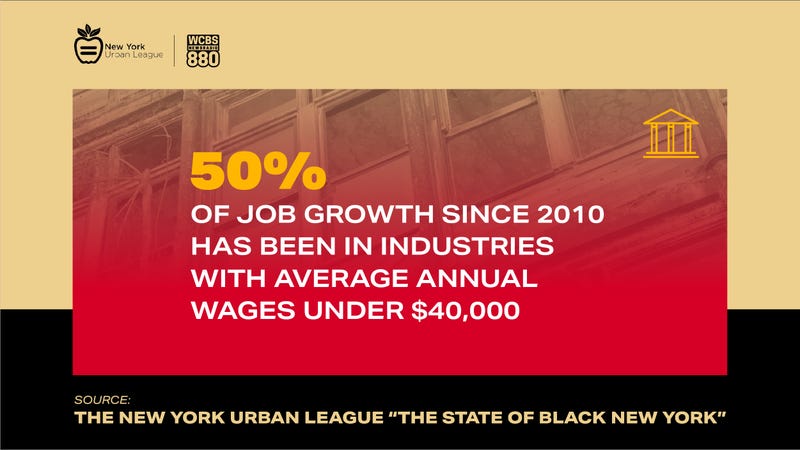
As part of our coverage of this topic, we wanted to engage some of the people running for mayor of New York City to discuss the problems and potential solutions.
Democratic candidate Kathryn Garcia has been in city government for 15 years working in housing, environmental protection and sanitation. Most recently, she worked as the city’s food czar during the early days of the pandemic and saw firsthand the need.
“I think that this is really a tragedy to see these types of numbers, but know that there’s a human face behind them and a human family, usually with kids. And there’s a lot the city can do. Not only does the city need to ensure that we’re supporting people through the safety net programs that we have, but also creating real opportunity for people across the city and particularly for Black people and for women who have shouldered the burden so often in this city and we’re not creating jobs for them,” Garcia said. “That is why I would pair the concept of economic development with workforce development and ensure that those two things go hand in hand.”
Garcia said the city must also guarantee that high-paying jobs are available for students coming out of CUNY.
Garcia is also focused on making the city more affordable.
“First and foremost, when we talk about housing we have to make sure that we are renovating all of the NYCHA apartments and making them high quality places for people to live and raise their families,” Garcia said. “We also need to continue building and build deeply affordable housing for those who are at the lowest incomes levels, but also just make it easier to build housing. We’ve been in a scarcity situation since before I was born.”
Garcia said housing heals.
“We know the virus went rampant in overcrowded housing and got many more people sick because they couldn’t quarantine from each other, we know that it means that you can be much more successful in school, and we know that it’s easier to hold down a job when you have a permanent home,” Garcia said.
Meanwhile, just this week, Mayor Bill de Blasio announced plans to help close the wealth gap in New York City with a program to encourage people to shop at and celebrate Black-owned businesses.
There is no question that COVID-19 has wreaked havoc on local businesses, but studies show that Black businesses are twice as likely to shut down during the pandemic.
There are twice as many white entrepreneurs as Black ones in the city, according to the New York Urban League, and the Black-owned businesses that do exist make up just 2% of the total, and even less than 2% of the employees are Black.
The biggest challenge for Blacks in getting their foot in the door is money. Stats show banks won’t give it to Black as much as they will to whites.
Dawn Kelly, owner of a popular juice bar in Jamaica, Queens, was well aware of those realities when she lost her job in public relations at Prudential a few years ago.
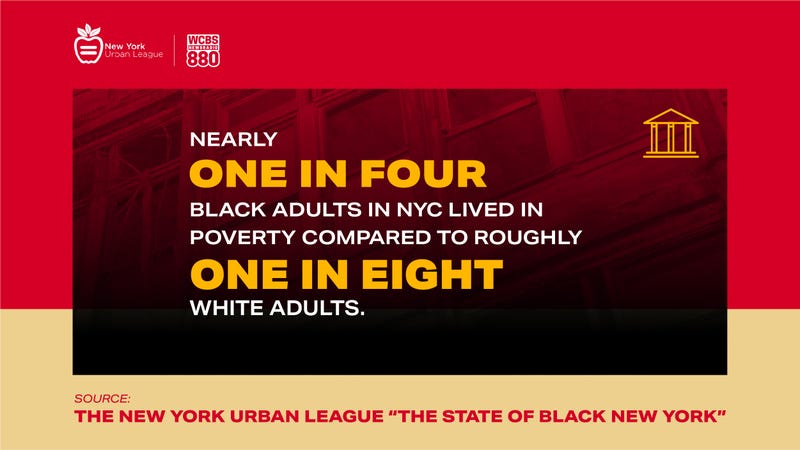
Our Mack Rosenberg asked her whether she thinks she would’ve been able to start her business if she didn’t get a severance package and had to rely on a loan.
“I would tell you that I think it would’ve been challenging and difficult at best,” she said. “The stories are out there. Black people, for the most part, and first time business owners, so I don’t want to just say Black people, but Black people more often than not don’t get the capital from the banks and lending institutions that they need in order to start a business and to sustain a business.”
Aside from her success since opening The Nourish Spot is her success as a mentor to young Black people looking to become entrepreneurs.
Also in on the mission to expand the Black economy is the city’s Small Business Commissioner Jonnel Doris. He started BE NYC, with “BE” standing for Black Entrepreneurs. With funding from the city and big companies like Ernst & Young and Mastercard.
They operate on what Doris likes to call the three M’s — money, mentorship and marketing.
“Help you with access to capital by bringing in new partners like Goldman Sachs and others, making sure that they’re connected to other peers that can help them sort of get through the program, and how do we expand and grow to digital storefronts but also enhance your online presence being that we’re in the pandemic most of what we’re doing online,” Doris said.
He calls Kelly a star, in large part because of her mentoring.
Three young Black people have already started their own businesses thanks to her.
“Because I know more, I must do more. There’s a famous saying in the Black community, ‘To whom much is given, much is required.’ And so I see my life, not really differently than others, I just have made different choices than others, and so because I have had the opportunity to do more, see more, experience more, I see it as my role to teach others,” Kelly said.
Doris said it’s critical for entrepreneurs to help other entrepreneurs like Kelly is doing. But he still sees the financial challenges as a stumbling block.
“These things are critical. What others don’t have to think about when they start a business, the businesses that we’re talking about here today do,” Doris said.
As we round out this week’s reporting on the New York Urban League report on the “State of Black New York,” we wanted to bring in another candidate for mayor.
Ray McGuire has spent his career on Wall Street helping run big companies, including Morgan Stanley and Citi Group.
His is African American and self-made.
Our Lynda Lopez spoke to him this week about his thoughts about the racial divide in the economy.
He said his plan is to lead the largest most inclusive economic comeback in the history of this city.
“Which is to put people to work, give people jobs, move them from no class to middle class,” McGuire said. “My plan is go big, go small, go forward, putting 500,000 New Yorkers to work so that they can earn a wage, earn a living, that takes them from the lower income to the middle income so they can participate in the way that all of us want to participate in this city.”
At the center of his plan, is a focus on infrastructure that includes affordable housing.
“It should not be the case that people make $15,000 to $30,000 a year, who are really essential to how this city works, pay 50% to 60% of their income to rent. That’s not truly affordable, so we need to make certain that we build truly affordable houses,” McGuire said, adding that the digital divide is also an issue he plans to address. “It’s had such a negative impact and profound impact on how we educate our kids and what my plan is, my go big plan, is to focus on building broadband so that people have access. We have 1.5 million New Yorkers, people who are lower income, don’t have access to broadband or mobile and we need to fix that.”
His plan also focuses on small business that he describes as the lifeblood of the communities.
“I have a plan to support the small business with wage concessions, 50% wages, so they can keep their sales tax receipts, so that we cut the bureaucracy and give them relief on many of the fines that have been levied,” McGuire said.
His goal is to uplift the city economically and grow out of this crisis.
https://omny.fm/shows/880-weekly-rewind/cuomos-nursing-home-problem-vaccines-and-texas-powNeil A. Carousso produces The 880 Weekly Rewind with Lynda Lopez Friday nights at 7 PM on WCBS Newsradio 880, including all video content. Listen to this week’s full show on the media player above.
-
Small Business Spotlight: Industry City Draws Scores of Weekend Shoppers, Positions Retail ‘Partners’ to Succeed
Posted by: Neil A. CaroussoPost Views: 721By Joe Connolly and Neil A. Carousso
NEW YORK (WCBS 880) — Industry City has developed the holy grail of retailing by attracting 10,000 visitors each weekend – 75 percent of pre-pandemic volume – while investing in its tenants’ recovery.
The historic complex bills itself as “Brooklyn’s vibrant creative hub along the scenic waterfront of Sunset Park,” housing 550 local shops, restaurants and manufacturers – many of which have suffered steep losses. But, Industry City’s largely open-air space has allowed them to operate safely. About 40 percent of its tenants have reopened since the shutdown.
“They can safely come, hang out, have a drink, see some music, shop at Sahadi’s, shop at Japan Village, etc. and that’s really helped them considering the environment,” Industry City Director of Development Jim Somoza said on the WCBS Small Business Spotlight, sponsored by Dime Community Bank.
The complex owns its own streets and has sprawling outdoor dining space with large tents for inclement weather.
Somoza was part of the development team of Chelsea Market, starting in 2003, before embarking on Industry City’s vision of new-age retail-tainment featuring innovative local businesses that appeal to Brooklynites and tourists alike.
He told Joe Connolly and Neil A. Carousso about several Industry City tenants, including a blacksmith that entices customers to the waterfront space.
“While they’re coming to see that, they’re also buying a drink at the Frying Pan, they are going to Standard Wormwood and Brooklyn Kura,” Somoza said, adding, “They bring people to the overall project.”
Industry City’s business plan revolves around the experience, which he describes as the “antidote to the Internet.” People are itching for an outlet and Somoza anticipates high post-pandemic demand.
“When we are doing our jobs well at I.C., we’re transporting people,” he said. “We’re taking you away.”
Shoppers can take blacksmith classes at Nazz Forge, savor chocolate as they watch it being made at Li-Lac Chocolates, and watch the Christophe Pourny Studio restore antique furniture on the other side of the glass. This connects consumers and producers on another level through an Epcot-like or Hershey Park adventure in Sunset Park, Brooklyn.
It could be the model for business communities who will need to convince hardened online shoppers to shop local and in-person.
Businesses in Industry City have been set up to recover and succeed. Somoza told WCBS 880 he likes to think of their role as a “partner” to its tenants rather than a “landlord” – a word he avoids using.
“What we do is we support them,” he explained.
At the outset of the coronavirus pandemic, Industry City offered rent breaks, changed leases to percentage rent, and helped business owners navigate the Paycheck Protection Program (PPP) loan applications and requirements.
“I think that’s a part of the reason, with one exception, every single one of our retailers has reopened,” said Somoza.
Small and mid-size businesses there feel they are nearing the finish line at the end of an arduous year, according to Somoza, who noted many are applying for the latest round of the PPP loan.
See keys for creating economic development to recover from the pandemic on the WCBS Small Business Spotlight video above.
-
‘Doing Our Part:’ Inspiring Organizations With Inspiring Stories
Posted by: Neil A. CaroussoPost Views: 1,071Executive Produced and Edited by Neil A. Carousso
Investors Bank is proud to present “Doing Our Part,” an important series of interviews created to spotlight New York and New Jersey organizations working for the well-being of the communities they serve.
Whether providing food for those in need, helping struggling businesses or offering programs for local youth, these organizations play a critical role. The Investors Foundation recognizes their impact and supports them in their efforts. Watch and listen to the interviews below to learn how these inspiring organizations are doing their part.
https://player.vimeo.com/video/492300187
https://player.vimeo.com/video/493775975
https://player.vimeo.com/video/495869386
https://player.vimeo.com/video/498019515
https://player.vimeo.com/video/500198342https://player.vimeo.com/video/498479546https://player.vimeo.com/video/498478890https://player.vimeo.com/video/498479319https://player.vimeo.com/video/498479213For the past 15 years, the Investors Foundation has helped support local civic-minded organizations and initiatives with contributions of more than $40 million. Learn about the Investors Foundation and its activities, including how it may be able to help your organization.
-
Small Business Spotlight: Retired Giant Tiki Barber Extends His run with Key Business Pivots
Posted by: Neil A. CaroussoPost Views: 798By Joe Connolly and Neil A. Carousso
NEW YORK (WCBS 880) — Retired running back Tiki Barker is elusive and quick on the gridiron and in the boardroom.
Barber played ten seasons in the NFL with the New York Football Giants. Since retiring, he has followed his passion for business in which he earned his degree from the University of Virginia.
“What I learned, obviously from my football career but also my early business career, is that relationships are invaluable,” he told Joe Connolly and Neil A. Carousso on the WCBS Small Business Spotlight.
When the market crashed in 2008, the three-time Pro Bowler had to get out of an affordable housing partnership he entered with billionaire real estate developer Stephen Ross after he retired from the league in 2006. But, the relationship he formed and maintained with The Related Companies chairman and Miami Dolphins owner led to an opportunity years down the road when Ross invested in Thuzio – the events company Barber co-founded in 2012.
“How you manage those relationships are of paramount importance for things down stream,” Barber explained.
He finds it liberating to find new ways of doing business. That realization came when Thuzio was forced to make a halftime adjustment amid the coronavirus pandemic.
It moved online and hosted private virtual business talks with celebrity speakers, including “Shark Tank” star and FUBU founder Daymond John, retired New York Jets linebacker Bart Scott and executive chef Josh Capon. Barber and his partners later changed the business model to make all virtual events free because their presenting sponsors were willing to pay a premium for more viewers.
“More importantly, you want qualified eyes,” he said, adding, “You want to know who your audience is.”
The “Tiki & Tierney” co-host told WCBS 880 they create events for their sponsors to target specific business executives and groups who are likely potential clients. For example, sports betting operator DraftKings sponsored a Thuzio virtual talk with Barber and retired New York Mets captain David Wright.
“We have this aggregation of business executives who you specifically want to talk to and we’re bringing them together over a shared passion for sports or food or wine or business information,” Barber said of Thuzio’s appeal to sponsors.
The company hosts about 35 virtual events a month, which he said would be near impossible for them to pull off in-person. Thuzio grew from eight employees to 15 in the pandemic amid rising demand for content.
Barber’s business mindset has been shaped by his mentors and experiences in the NFL. The Giants great told Connolly and Carousso he was inspired by Jon Gruden’s motivational tactics. Gruden was the head coach for the Tampa Bay Buccaneers where his twin brother Ronde Barber played cornerback and won a Super Bowl in 2002.
“We all have things that disrupt our lives,” Tiki said, noting the hardships suffered in the pandemic. “Sometimes, you have to get up and fight for yourself and fight forward for your country and as an individual. And, that’s essentially what (Gruden) was saying.”
Barber tries to portray positivity and enthusiasm among his employees, because, as Barber recalled Gruden’s message, “It’s not just for you, it’s for people who are around you.”
Football is a team sport and the ex-Giant used it as an analogy in business throughout the Small Business Spotlight conversation. Giving the play-by-play of his Giants team record 95-yard touchdown run against the Oakland Raiders on December 31, 2005, he emphasized the blocking by his teammates that catapulted him into the end zone that Saturday night.
“Understanding that it takes everyone even those who don’t show up on the big screen in order to be successful” is the mantra that guides Barber’s post-football career.
Watch Joe Connolly and Neil A. Carousso’s conversation with Tiki Barber on the Small Business Spotlight video above.


